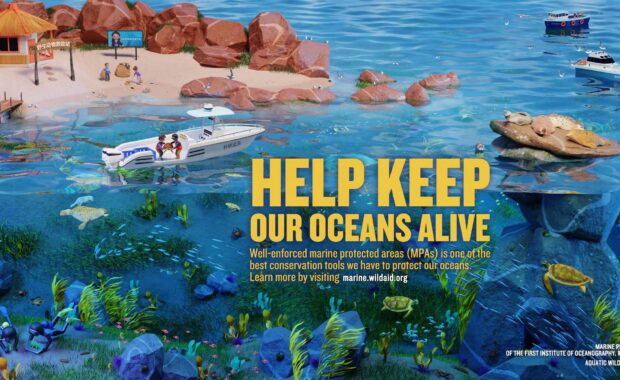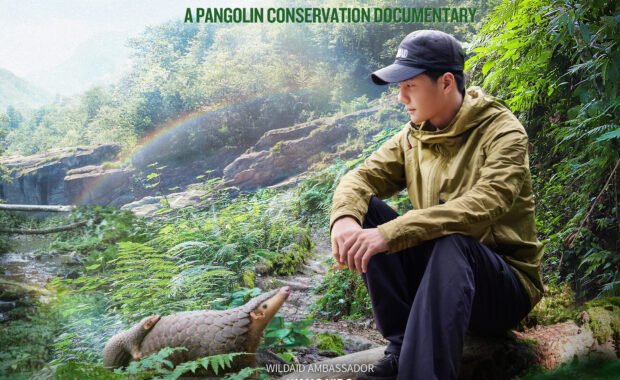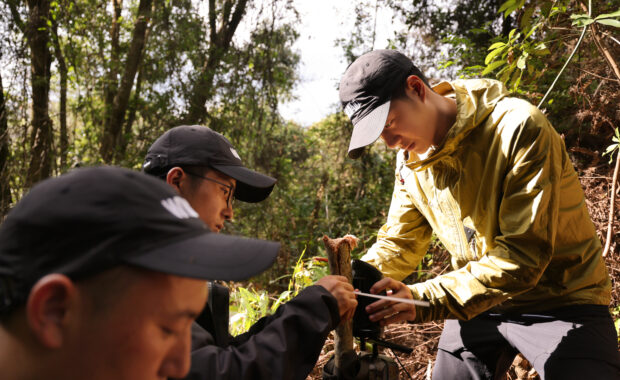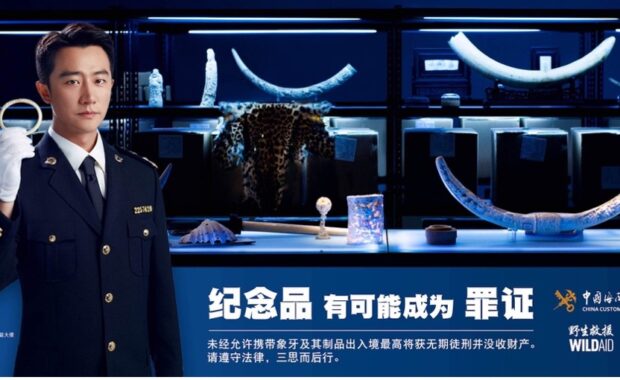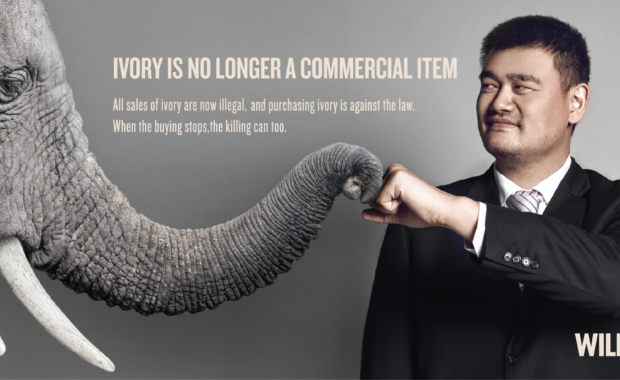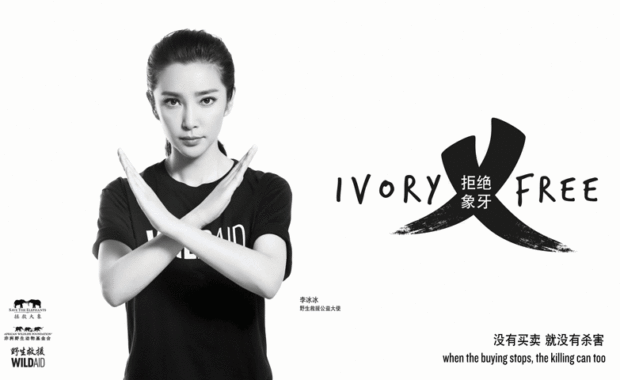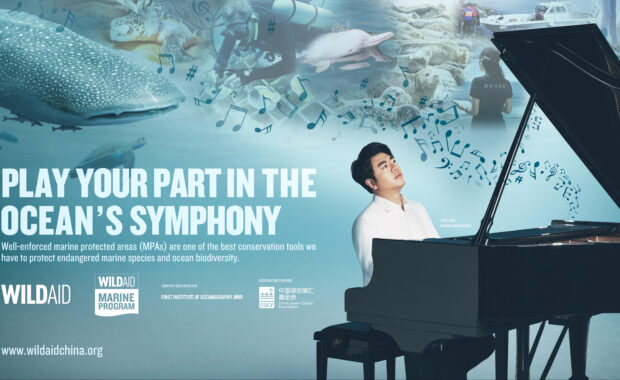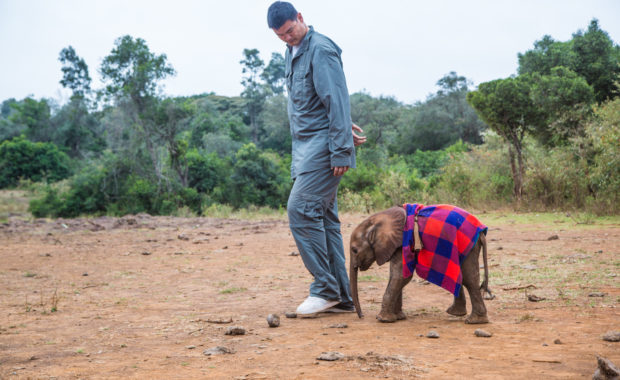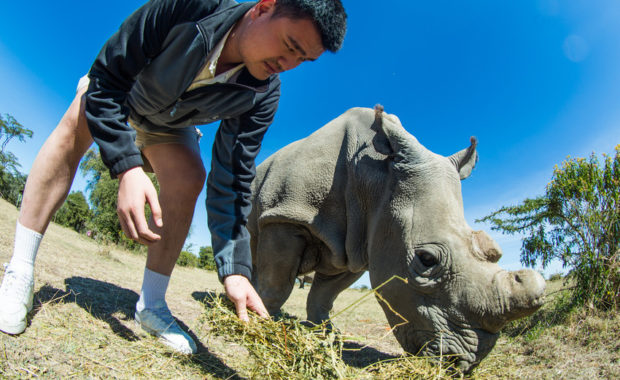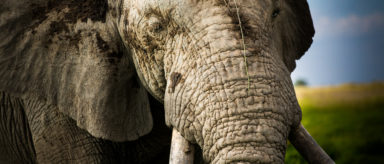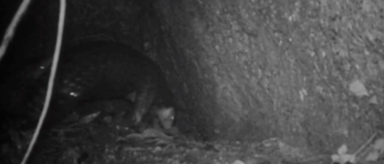Ending the ivory and shark fin trade, promoting sustainable lifestyles
China has some of the world’s most beautiful and diverse ecosystems with species that are vital to a healthy planet. But with the world’s largest population, it is also a major consumer of wildlife products, including pangolin and tiger parts, and a leading consumer of natural resources, the top market for natural resources more generally, accounting for nearly a quarter of current greenhouse gas emissions.
For over 20 years, WildAid has been working in China to protect biodiversity and address climate change. Alongside our government, corporate, and NGO partners, we have produced high quality campaigns with influential ambassadors that have made great strides towards reducing demand and promoting sustainable lifestyles in China and around the world.
WildAid’s ground-breaking campaign to raise public awareness about the ivory poaching crisis paved the way for the Chinese government’s landmark 2017 decision to ban the ivory trade, the greatest single step in safeguarding the future of the African elephant. Elephant poaching in Africa has since declined significantly.
Our campaign to reduce shark fin soup consumption in China has had an equally dramatic impact since it was first launched in 2006, reducing demand in the country by more than 80% over the subsequent decade. We are now adapting this successful strategy to reduce demand amongst the emerging middle class in Thailand.
Across China, conservation awareness is rising. A 2020 Peking University survey conducted in 2020 found nearly 97 percent of Chinese say they don’t think it’s right to eat wild animals and nearly 78 percent oppose the use of wildlife products including fur and bone, and in medicine.
- 172
China has closed all 172 ivory carving factories and retail shops. - 80%
Shark fin consumption fell by more than 80% in China from 2011-2016. - 6.2 million
More than 6.2 million Chinese people have committed to a sustainable lifestyle on our Climate Action Inspiration Hub.
Today, WildAid China’s campaigns focus on three key areas. The first is to advocate for sustainable low-carbon and sustainable lifestyles. Under the slogan “Every Climate Action Counts,” our messages on energy use, diet, plastic, and transportation reach hundreds of millions of consumers every year, and motivate tens of millions of people to make more sustainable choices. We are committed to expanding that program, working with major corporate partners and key government ministries to significantly reduce carbon emissions.
At the same time, WildAid China continues its behavior-change work to reduce demand for wildlife products and educate people about the regulations that prohibit the capture, transportation, trade and consumption of wildlife products. Our campaigns promote the protection of pangolins and tigers, discourage Chinese tourists from buying wildlife products as souvenirs and work with traditional medicine practitioners to transition away from the use of wildlife.
Finally, we work to protect the oceans around China and the fauna that lives there, through campaigns to raise awareness of marine biodiversity protection and reduce demand for sea turtle products, as well as by promoting the construction and management of marine protected areas in China and advocating for sustainable fishing practices.


